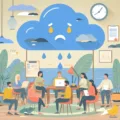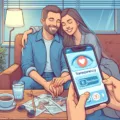Understanding Abusive Relationships
Experiencing abuse from an intimate partner is painful and confusing. If you see aspects of your own relationship in the Netflix show You, know that support is available.
Recognizing Warning Signs
- Controlling or possessive behaviors
- Pressure to move the relationship forward quickly
- Isolation from friends and family
- Belittling comments or threats
- Explosive anger or mood swings
These behaviors erode self-esteem over time. You may make excuses or blame yourself when an abusive partner crosses boundaries. But the truth is – abuse is never justified, no matter what.
Getting Support
Speaking to a counselor can provide much-needed clarity. Calling a domestic violence hotline offers critical information and resources when you’re ready. Support groups connect you with others who understand. You deserve to feel safe, respected and cared for in intimate relationships.
Prioritizing Emotional Safety
With support, many people in unhealthy relationships are able to leave safely. Creating physical distance from an abusive partner is often the first step in reclaiming emotional safety and well-being. There are people and organizations ready to help you map out next steps when you decide to reach out.
Healing From Past Harm
The effects of intimate partner abuse can linger even after leaving the relationship. Counseling provides a space to process trauma related to the abuse. Support groups facilitate healing by reducing isolation and shame. With time and proper support, many survivors move forward in healthy, empowering ways.
FAQs
What are some early warning signs of an abusive relationship?
Controlling behaviors, possessiveness, pressure to commit quickly, isolation from friends/family, belittling comments, explosive anger, and mood swings can indicate future abuse.
Why might someone stay with an abusive partner?
Fear, lack of money/resources, protecting children, love for the partner, loneliness, lack of support, and a sense that the abuse is normal or justified are some reasons people may stay.
What should I do if my partner scares or hurts me?
Reach out for help right away by calling a domestic violence hotline to speak with an advocate anonymously. They can help you access counseling, support groups, shelter if needed, and other resources.
Are abusive people aware of their behavior?
In some cases yes, but often abusive partners deny, justify, or minimize the abuse. Taking responsibility and truly changing behavior happens voluntarily and rarely without intervention.
Can an abusive relationship get better with counseling?
It’s possible, but the abusive partner must admit fully to their actions and commit long-term to learning non-abusive behaviors. Even then, there is no guarantee the relationship will become healthy.









